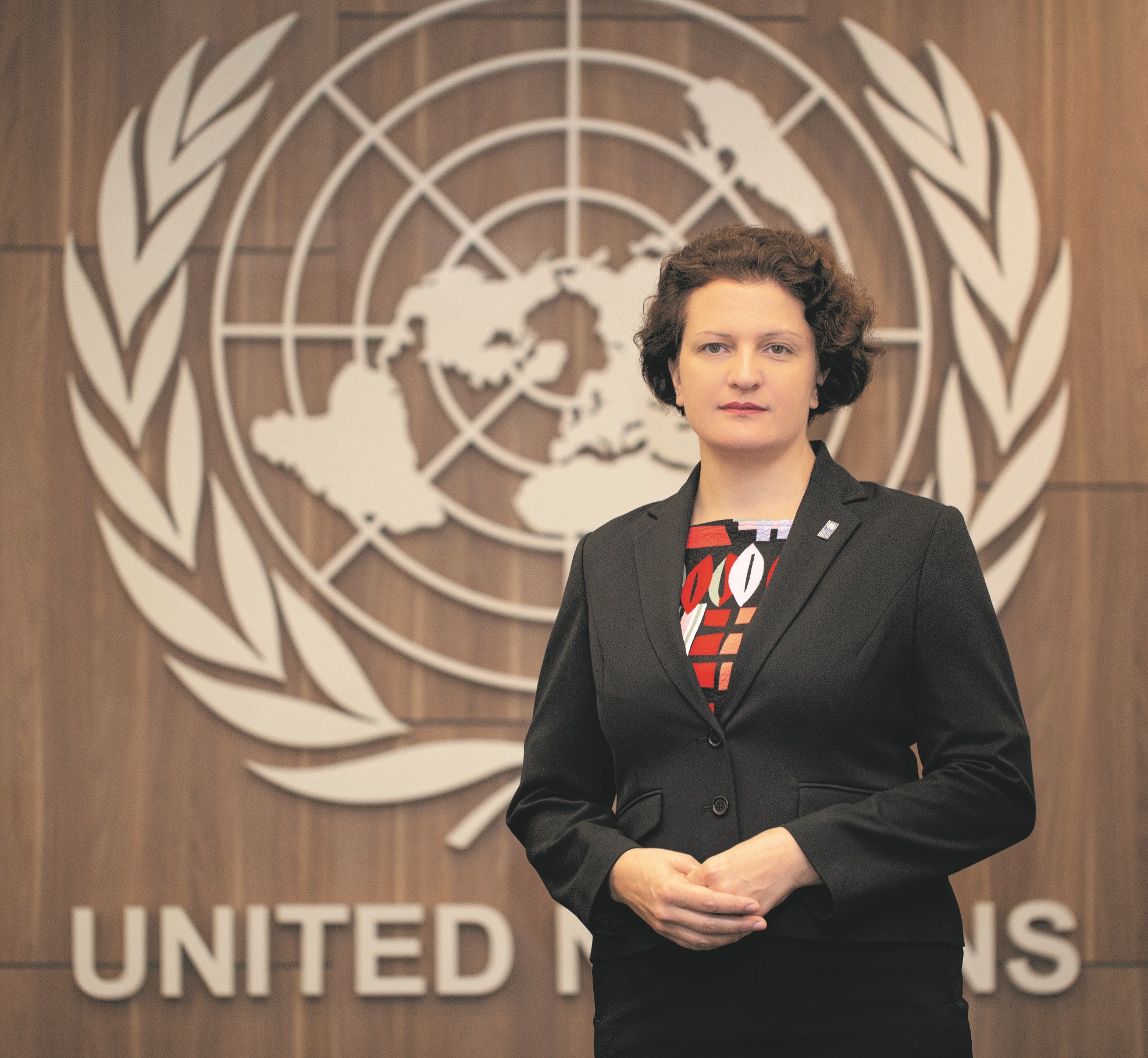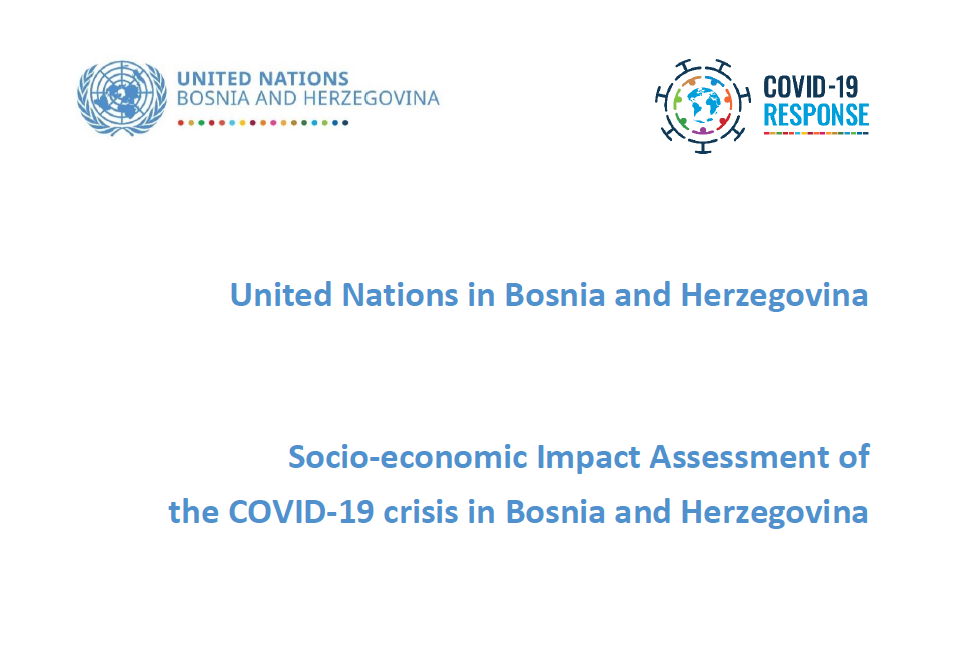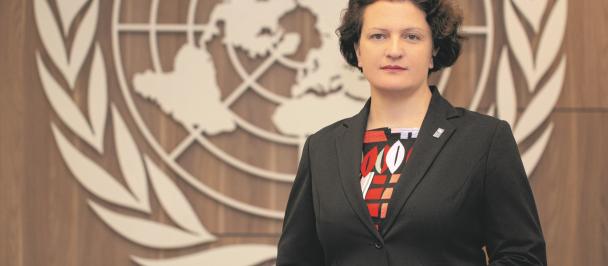Steliana Nedera, UNDP Resident Representative in BiH
OpEd by: Steliana Nedera
UNDP Resident Representative
Bosnia and Herzegovina
By working together and advocating for and implementing better policy solutions we can make sure that no one is left behind as we jointly rebuild the economy and the livelihoods.
As time goes by, seven months after the outbreak of the COVID-19 pandemic in March this year, we start to see more clearly how this crisis affects our livelihoods. We know that at least 23,000 people in Bosnia and Herzegovina lost their jobs in the first four months. The threats to the livelihoods are real – we expect vulnerable families that are already struggling to be pushed further below the poverty line, and we expect the divide between the formal and informal economy, public and private sectors and large versus micro, small and medium enterprises to become larger.
Expectation of a swift return to the ‘historic normal’ could turn out to be optimistic. It is likely that the progress made over the years will slow down and in some cases will even slide back. Our pledge of ‘building forward better’ means that we call for a recovery process that leaves no one behind, and for a recovery that is smart and jumps forward, instead of only fixing the immediate issues and restoring the status quo. Thus, the immediate measures have to be complemented with policy solutions that target the medium-term and the long-term impacts.
It is important to respond adequately and promptly to the needs of all citizens
The growth of Bosnia and Herzegovina was vulnerable before the COVID-19 crisis as the country’s economy, influenced by 2018-2019 global and Euro Area economic trends, was slowing down. The Coronavirus pandemic came on top of the country’s structural weaknesses, including low competitiveness and the weak business environment. Sectors based on in-person services such as tourism, hospitality, trade, transportation and storage, cultural and creative industries as well as labour intensive industries have suffered the most severe damage.
Tourism, which in recent years revealed potential to become a driver of the economy, has been particularly hard hit by the pandemic. The number of international tourists in Bosnia and Herzegovina between January and June 2020 dropped by 71 per cent compared to same period last year. Thousands of jobs in the tourism industry are at stake, with income from tourism dropping by close to 80 per cent.
Because of their limited resources to cushion the financial losses caused by the pandemic, medium, small and micro enterprises that dominate the economy of Bosnia and Herzegovina have been hit more severely compared to larger firms. The owners of small and large businesses alike are worried about the continued uncertainty. The lockdown period is hopefully behind us and yet the period ahead remains challenging for companies in Bosnia and Herzegovina as they face the looming prospect of continued layoffs.
The crisis has had a major impact on the labour market. The unemployment rate rose by 5.8 per cent from March to July, as reported by the BiH Statistics Agency. Although the immediate response of governments at the onset of the COVID-19 pandemic to some extent alleviated the initial labour market shock, it is likely as the recession continues that the fragmentation of the labour market will deepen. Women and youth traditionally have lower activity and employment rates and are therefore likely to be among the hardest hit. Without a deliberately gendered response to the COVID-19 crisis, there is the risk that the gains made in terms of the economic empowerment of women will roll back.
The pandemic and the economic crisis will not wait and therefore neither should governments. It is crucial that the policy responses of the relevant authorities safeguard jobs in the private sector in order to ensure a base from which to accelerate job creation in the medium term for those who are jobless or will lose their jobs due to COVID-19. The governments in Bosnia and Herzegovina have to respond in a timely manner by developing and implementing recovery plans that carefully balance between short and long-term needs. While the COVID-19 pandemic may have diverted the attention and resources of policymakers away from structural and institutional issues this must not be used as an excuse to avoid dealing with them. On the contrary, Bosnia and Herzegovina needs to utilise this crisis as an opportunity to speed up its efforts focused on establishing a forward-looking development agenda as it ensures a well-balanced and immediate response to the crisis.
Governments at all levels, as their mandates require, need to take action to carry out (1) institutional reforms, such as improvement of regulatory and institutional quality, digitalisation of the public administration, enhanced transparency and the fight against corruption, (2) support the manufacturing sector in achieving greater competitiveness and promote the digitalisation-green energy nexus, (3) reform and strengthen the education system in line with the demand for skills and (4) strengthen and increase the efficiency of the social protection of the vulnerable.
Moving forward
Many people who have lost their jobs and whose livelihoods have been affected deeply by the pandemic will feel that full recovery is unattainable and that the future is bleak. Yet if there is one lesson that we have learnt from the past it is that people, communities and governments can overcome such crises when they work together effectively.
UNDP in Bosnia and Herzegovina, as part of a joint response by the United Nations, actively supports the authorities across different levels of government to address the crisis caused by the COVID-19 pandemic, beyond the provision of health supplies and equipment. Digital transformation and green economic development hold a strong potential for boosting country’s economy, and are areas strategically targeted by UNDP.
By working together and advocating for and implementing better policy solutions we can make sure that no one is left behind as we jointly rebuild the economy and the livelihoods.
---
Recommended reading:
The UN Socio-economic Impact Assessment (SEIA) of the COVID-19 crisis in BiH is intended to inform and guide the policy design of the authorities in BiH in response to COVID-19 over the next 12 to 18 months, and also provide medium- and longer-term policy recommendations, as well as help mobilize resources for recovery. UNDP prepared the SEIA report as technical lead for socio-economic recovery, and co-chair of the BiH UNCT Socio-Economic Task Team, under the leadership of the UN Resident Coordinator and with inputs from UN agencies

 Locations
Locations


